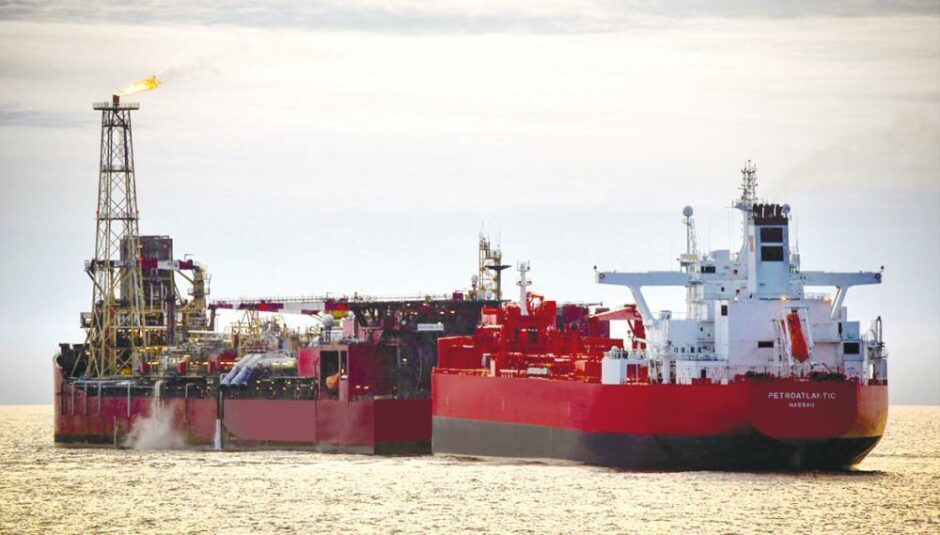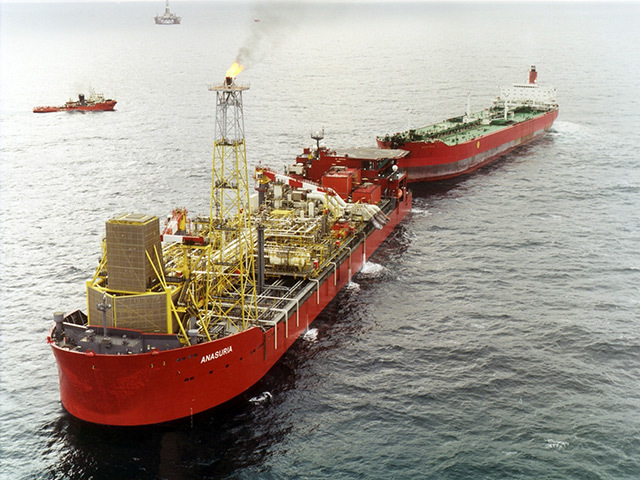
Issues with a production riser at the Anasuria FPSO have finally been fixed, more than a year after the fault cropped up.
In May 2021, one of the pipes that connects the vessel to the subsea well malfunctioned, impacting operational performance at the Hibiscus Petroleum (KL:HIBISCS) field.
The riser was isolated from the primary production system, leading to lower overall daily production – it therefore also impacted opex per barrel of oil equivalent, as well as offtake volumes.
In its quarterly results, published on Wednesday, Hibiscus confirmed the project to replace the malfunctioned rise has been completed, and it returned to service in September.
Offshore turnaround in July
Production was also hampered by a planned offshore turnaround of the Anasuria FPSO, which got underway on June 17 and lasted 30 days.
The objective was to improve the reliability and integrity of the vessel, in addition to ensuring a “safe offshore working environment”.
Despite the impact of the faulty pipe, the Malaysian oil and gas company says its UK segment achieved “healthy profit margins” in Q3.
Between the start of July and the end of September, its North Sea business recorded a gross profit and ebitda amounting to £11.1 million and £12.7m respectively.
Windfall tax reflections
Hibiscus also laid out its intention to “optimise the incentives” offered as part of the energy profits levy, or windfall tax.
The Kuala Lumpur-listed group plans to “phase” its UK capital expenditure program to cash in on the investment relief currently in place.
Westminster announced last week a ramping up of the levy on oil and gas profits from 25% to 35% – the change will come into force on January 1.
When it takes effect, the UK upstream industry will face a 75% marginal rate of tax until 2028, with no plans to remove the measure if commodity prices return to normal levels.
Hibiscus had accounted for a “deferred tax liability” of £1.3m as a result of the original regime – it didn’t say how the change has impacted its predictions.
Capital spend to offset liability
But the operator did say it “does not expect a significant income taxation liability” arising from the windfall tax as it predicts offsets from “significant capital allowances in the future”.
Work is currently ongoing to progress the Teal West project in the UK North Sea, despite partner NEO Energy’s recent exit of the licence.
NEO, which held a 30% interest, advised Hibiscus in July of its decision to pull out of the scheme.
Given the “advanced state of the technical work that has been done and the value that this project adds to the Anasuria Cluster”, Hibiscus is ploughing on with the project on a 100% basis.
Teal West is expected to have a production life of 10 years and, in the high production case, reach a total of 10.4 million stock tank barrels of oil and 9.8 billion standard cubic feet of gas.
Hibiscus also acknowledged the big decarbonisation spend incentive included as part of the updated windfall tax.
It stated: “This encourages us to identify further opportunities that will reduce our overall carbon footprint.”
Recommended for you



